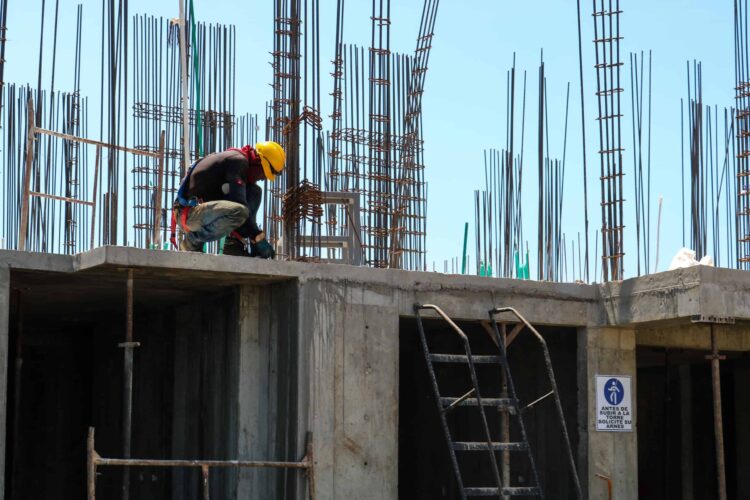New Act Modernizes Construction Standards and Building Accessibility

Authors: Bennet Misskey, Nicole Graham
The Construction Codes Act, SS 2021, c 9 (the “CCA”) is set to come into force in Saskatchewan on January 1, 2022,[1] which will repeal and replace The Uniform Building and Accessibility Standards Act (the “UBASA”). The CCA promotes better access and use of buildings in Saskatchewan for persons with disabilities and protects persons from unsafe renovation and construction practices.
The CCA will incorporate the applicable edition of the National Building Code of Canada, the National Energy Code of Canada for Buildings and the National Plumbing Code of Canada. It will also empower the Government of Saskatchewan to make regulations prescribing modern standards for energy efficiency and building construction.
The CCA also modifies how construction standards are developed, adopted, and implemented in the province and expands upon the powers and responsibilities of building owners, local authorities, building officials, and the construction industry. The following changes are noteworthy:
Binding Ministerial Interpretations
The CCA empowers the minister to issue binding written interpretations of any provision of a Construction Code or prescribed standard under the CCA. This will give the government an effective and timely means to ensure consistent interpretations of construction codes between different local authorities in Saskatchewan.
Interpretations by The Saskatchewan Construction Standards Appeals Board
The Saskatchewan Construction Standards Appeals Board (the “Appeals Board”) will have the power to make binding orders on how any requirement of a Construction Code is to be applied or interpreted in the event that there is difference of interpretation between owners, local authorities, building officials, or contractors. These orders will only apply to a specific building and are not binding province-wide. In the event that there is a conflict between an interpretation issued by the minister and an interpretation made by the Appeal Board, the minister’s written interpretation prevails.
Registration of unresolved building official orders
The CCA will allow local authorities to register an interest on a building with the Land Titles Registry for contraventions of building official orders. This will help prospective purchasers to identify outstanding deficiencies with an existing building prior to purchase, much like how the purchaser of a vehicle can search car titles for liens and accidents.
The new legislation also allows appeals to the Appeals Board from the order of a building official within 15 days after service of the order on the owner or constructor. The Appeals Board will have the power to confirm, revoke, or vary an order as required.
Adoption of a Model Building Bylaw
Local authorities will be given the option use a model building bylaw without being required to develop one themselves. The prescribed model bylaw will apply by default on the day after the regulations require a building bylaw to be adopted by the local authority or after it fails to adopt a new building bylaw after an existing bylaw is repealed.
Co-operation with other local authorities
The CCA creates opportunities for regional co-operation between local authorities. This includes the ability for local authorities to enter into an interjurisdictional building agreement regarding a joint building bylaw, mechanisms for resolving disputes between local authorities, and the sharing of certain resources and responsibilities for the administration and enforcement of the CCA.
Emergency Response Measures
The minister will have additional powers to respond to a declared local or province-wide emergency, including the ability to appoint officials, authorize entry into any buildings or land, and to act as the local authority where requested to do so. This will help provide greater support to protect lives, property and mitigate damages in an emergency situation.
Immunity
Under section 26 of the UBASA, a public official can be held liable if they fail to exercise their statuary powers in good faith and with reasonable care. By contrast, the CCA will only make such persons liable if they act in bad faith or are grossly negligent. This contemplates a higher threshold of statutory immunity from legal claims than under the current legislation.
MLT Aikins has the right combination of legal and industry experience to help you navigate the rapidly evolving legislative and regulatory landscape, including in updating your construction contracts, establishing administrative procedure and policy, as well as training employees. We can help your organization prepare for these changes and developments, reducing the risk. Contact a member of our team for assistance.
Note: This article is of a general nature only and is not exhaustive of all possible legal rights or remedies. In addition, laws may change over time and should be interpreted only in the context of particular circumstances such that these materials are not intended to be relied upon or taken as legal advice or opinion. Readers should consult a legal professional for specific advice in any particular situation.
[1] OC 592/2021 proclaims that the CCA will come into force on Saturday, January 1, 2022.



